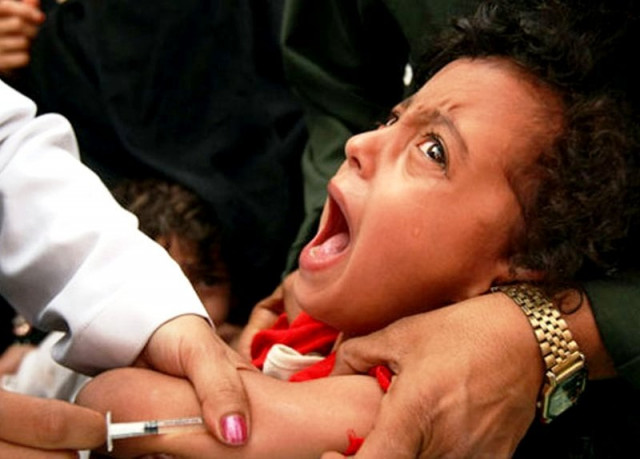Anti-measles campaign: Cosmetic effort?
Only 400 of 1,300 personnel sent to administer the potentially life-saving shot are trained vaccinators.

Purpose of campaign is to vaccinate three million children under 10 years in a province where 60 deaths have occurred due to the disease and 10,000 remain infected. PHOTO: REUTERS / FILE
While the drive sounds like a very good idea, the issue, according to a report in this publication, is that only 400 of the 1,300 personnel sent into the field to administer the potentially life-saving shot are trained vaccinators. The rest, who include lab attendants and nurses drawn from public-sector hospitals have received for the most part only a day’s training, as opposed to the six-month training usually given to vaccinators. A number have never injected a child and health experts warn an improperly administered measles shot can lead to grave health risks. There are other complications too. We know from WHO statistics that Vitamin A deficiency is common in our country. Yet, a campaign scheduled in April to administer the vitamin was not carried out by the Health Department. A Vitamin A deficiency can lead to a higher fatality risk in children with measles. The fact that the drive has so far been restricted to Lahore has also been criticised.
The Health Department, in its defence, says only 400 vaccinators were available. This may indeed be the reality. But the fact is that children have been put at risk through the use of personnel not qualified to give the shot. The entire situation also highlights the inadequacies of our immunisation programme. In the first place, we need to know why so many children were not given the measles vaccine as a matter of routine, preventing the epidemic and the panic we now see. Secondly, we need to seek help from the international humanitarian community, given our own inadequate resources, so that the existing crisis can be overcome.
Published in The Express Tribune, May 3rd, 2013.













COMMENTS
Comments are moderated and generally will be posted if they are on-topic and not abusive.
For more information, please see our Comments FAQ